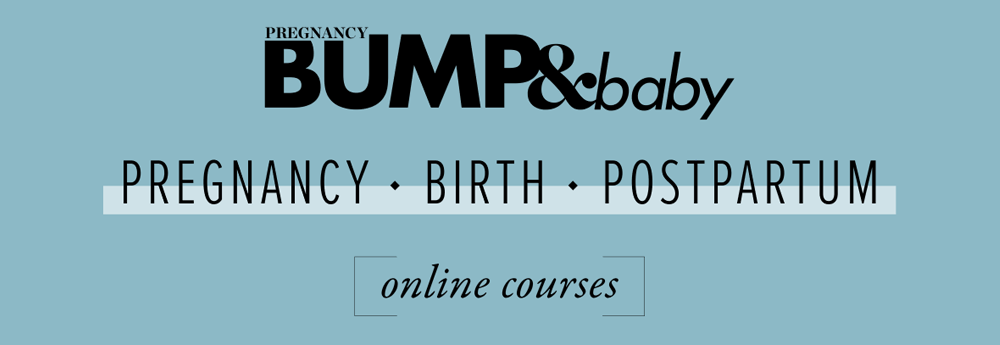
Although pregnancy is commonly said to be for nine months, it’s actually more like 40ish weeks (around 280 days) – a bit longer than nine months. To complicate matters even further, the 40 weeks of pregnancy are divided into three sections, called trimesters. The first trimester is weeks one to 12, the second trimester is weeks 13 to 27, and the third trimester is weeks 28 until birth – which generally happens somewhere around week 40 of pregnancy. Each trimester of pregnancy contains certain developmental stages and symptoms, and it’s fascinating to know what is going on inside your pregnant body during every stage. Read on to find out more about your baby, your body, and your incredible pregnancy!
Month 1 (weeks 1-4)
Wow, you’re pregnant – congratulations! Well, actually, you’re not technically pregnant until your egg has been fertilised by sperm, and this is most likely to happen around the time of ovulation – generally about 14 days after the first day of your period. Yes, we’re using a lot of weaselly words like “around the time” and “about 14 days”. This is because every woman’s menstrual cycle is different, and although the usual timing of pregnancy is based around a 28-day menstrual cycle, yours may be shorter or longer than that, or irregular from month to month.
When your baby is conceived, it’ll be about the size of a poppyseed – a small collection of cells which will multiply very quickly! By the end of week four, you may notice your period hasn’t arrived, and voilà: NOW you’re officially pregnant.
Passing the test
Confirming you’re pregnant can be done through a blood test or urine test, both of which work by detecting the levels of the pregnancy hormone HCG (human chorionic gonadotropin) in your body. HCG levels increase quickly, doubling every day to two days for the first 10 to 12 weeks of pregnancy, then levelling off. A blood test can detect the exact level of HCG in your body (at the time of the blood draw), which can help to date your pregnancy if you’re uncertain about when you conceived. Home pregnancy tests can’t give you the level of HCG in your body, and each differs in its sensitivity to detecting HCG. If you use a home pregnancy test, follow the instructions for the clearest result. If your period is late and you’ve taken a home pregnancy test but the result is negative, wait a few days and try again – it may be that your HCG level wasn’t high enough to be detected the first time around.
Implantation bleeding
You may notice some small spots of blood on your underwear, or light bleeding which occurs earlier than your period would normally be due. This is “implantation bleeding”, which occurs when the fertilised egg attaches to the lining of your uterus. Implantation bleeding is usually lighter in colour (pink or brownish rather than red). Implantation bleeding doesn’t happen to everyone, but it can be an early pregnancy sign.
Folic acid and iodine
Folic acid helps to reduce the risk of your baby developing neural tube defects like spina bifida. Iodine is important for your baby’s brain development. You can buy folic acid and iodine tablets at your local chemist, or your GP or midwife will give you prescriptions for folic acid and iodine tablets, which you should take from the time you find out you’re pregnant. You should also eat folate-rich and iodine-rich foods (make sure they’re cooked properly).
WHAT’S MY DUE DATE?
If you’ve just found out you’re pregnant, you might be wondering how far along you are. There’s a reason your GP would have asked you what the first date of your last period was – this day is counted as the first day of your pregnancy, even though you weren’t technically pregnant on that date! To find out your due date, add 280 days to the date your last period started. Now, this isn’t foolproof, because it assumes that your menstrual cycle is 28 days long. Due dates are only estimates, and on average, only 5% of births take place on their due dates.
BUMP&baby
BUMP & baby is New Zealand’s only magazine for pregnancy and early babyhood. Our team of mums and mums-to-be understand what it’s like to be pregnant in this connected age, and that’s why BUMP & Baby online is geared toward what pregnant women and new mums really want to know.
Other articles of interest
10 ways to soothe stitches
“A tear down there” is feared by many mums-to-be, but stitches of the perineum are common after childbirth, and usually heal well
Month 4 (weeks 14-17)
Welcome to the second trimester, also known as the “golden zone” of pregnancy, because everything should get…







